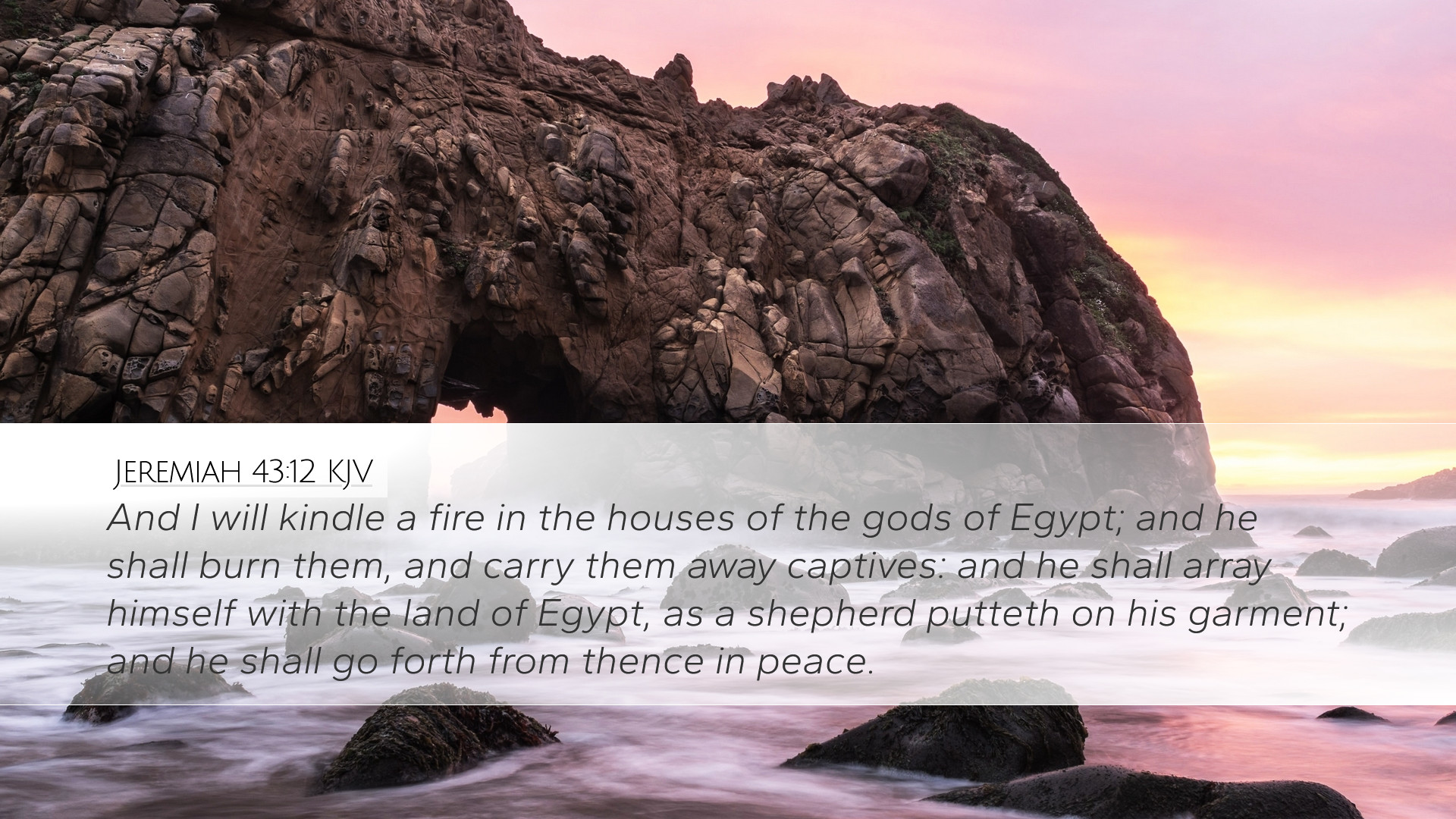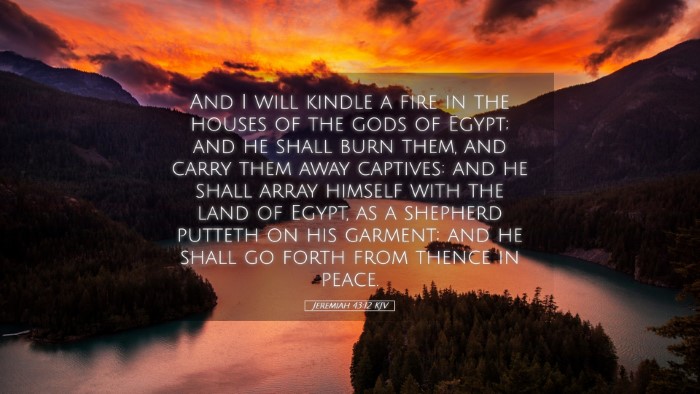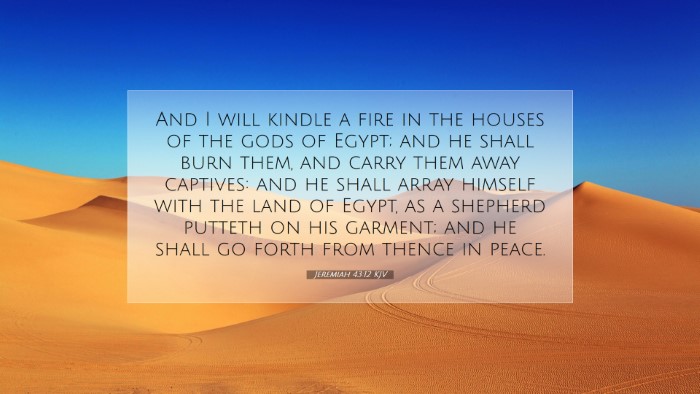Commentary on Jeremiah 43:12
Verse: "And I will take the remnants of Judah, that have set their faces to go into the land of Egypt to sojourn there, and they shall all be consumed; and they shall fall in the land of Egypt; they shall even be consumed by the sword and by the famine: they shall die, from the least even unto the greatest, by the sword and by the famine; and they shall be an execration, and an astonishment, and a curse, and a reproach."
Introduction
This verse is a striking depiction of divine judgment upon a disobedient remnant of Judah who sought shelter in Egypt after the fall of Jerusalem. The commentary seeks to elucidate the implications of the text through insights from esteemed public domain commentaries, providing a rich tapestry of theological insights.
The Context of Jeremiah 43
The book of Jeremiah is deeply rooted in the socio-political upheavals surrounding the fall of Jerusalem to Babylon. Following the destruction, a remnant of Judean people sought refuge in Egypt, defying God’s clear commands delivered through Jeremiah. This act of rebellion highlights a significant theme in prophetic literature—the tension between divine judgment and human disobedience.
Historical Setting
The historical backdrop of Jeremiah's prophecies illustrates a time of turmoil and despair. The people of Judah faced a devastating defeat, leading many to flee to Egypt, not only for safety but also as an act of defiance against God’s will. Jeremiah’s warning serves as a final prophetic appeal.
Theological Insights from Commentators
Matthew Henry
Matthew Henry emphasizes that this verse is a solemn warning about the fate of those who turn away from God’s guidance. He notes that the “remnants of Judah” were not merely seeking refuge; rather, they were acting out of fear and disbelief. Their choice to go to Egypt exemplifies a lack of faith in God’s sovereignty and providence.
- Disobedience to Divine Will: Henry articulates that the refusal to heed God’s command ultimately led to their destruction, illustrating the principle that disobedience to divine instruction brings severe consequences.
- Divine Judgment as a Theme: He highlights the comprehensive nature of God’s judgment: "from the least even unto the greatest," indicating that no one is exempt from the repercussions of sin.
Albert Barnes
Albert Barnes provides an analytical perspective on the ruin that awaits those fleeing to Egypt. He argues that Egypt is metaphorically a place of bondage and spiritual desolation. Barnes states that the people’s hope of safety in Egypt was misguided, as it ultimately led to their demise.
- The Symbolism of Egypt: Egypt serves as a symbol of worldly security and sin. Barnes warns that turning to the world for safety, rather than trusting in God, ultimately leads to spiritual death.
- Consequences of Famine and War: His exploration of the threats of “sword and famine” speaks volumes about the bleak realities of their choices and the certainty of God’s judgment upon their unfaithfulness.
Adam Clarke
Adam Clarke’s commentary delves into the severe implications of God's impending judgment. Clarke states that this verse serves not only as a warning but also as a profound expression of God’s justice. He reflects on the grim fate that awaits those who reject God’s commands.
- The Idea of a Remnant: Clarke emphasizes the concept of the “remnant,” which often represents those who remain after God's judgment. He notes that even among the remnant, there is still the presence of disobedience.
- Execration and Astonishment: The terms used, such as “execration,” are indicative of the irreversible consequences of their actions. Clarke interprets these as signifying utter rejection and disgrace in the eyes of the nations.
Application for Pastors and Theologians
This verse serves as a powerful reminder for spiritual leaders today about the necessity of total dependence on God as opposed to worldly wisdom. The plight of Judah should resonate with contemporary believers, urging them to remain steadfast in their faith even amidst dire situations.
- The Importance of Listening to God: Pastors should stress the importance of discerning God’s voice and obeying His commandments, recognizing that straying from divine paths can lead to dire consequences.
- Call to Repentance: This scripture encourages a call to repentance, urging believers to reflect on their reliance on earthly solutions instead of seeking God’s guidance in times of trouble.
- Courage in Leadership: The moral fortitude displayed by Jeremiah in delivering such a message amidst opposition provides a relevant example for leaders who may face similar challenges in their ministries.
Conclusion
Jeremiah 43:12 presents a clear warning against the folly of seeking refuge in the world rather than in God. The insights from public domain commentaries provide a multifaceted understanding of the text, shedding light on the consequences of disobedience and the essential nature of faithfulness to God’s instruction. As pastors, theologians, and students of the Word, it is crucial to internalize these lessons and apply them to our lives, communities, and churches today.


